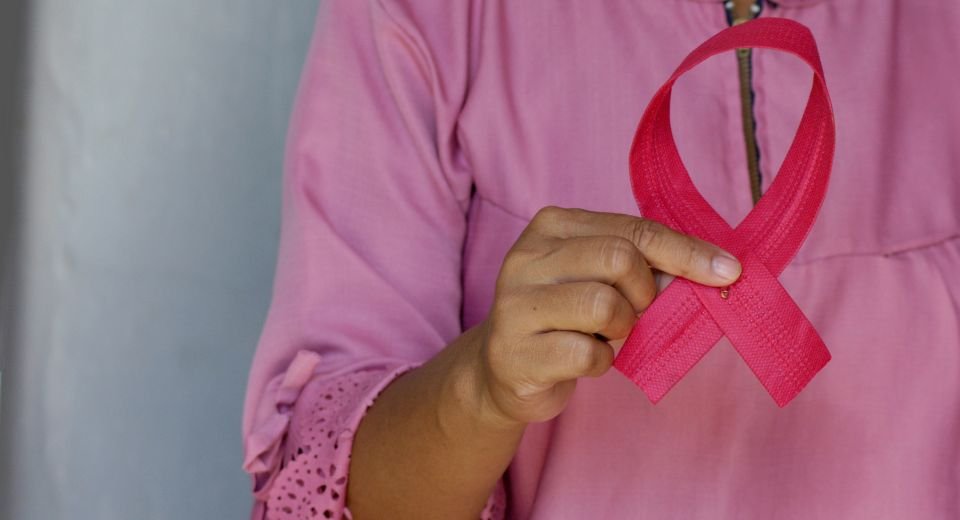HQ Team
June 3, 2024: An antibody-drug conjugate, jointly being developed by AstraZeneca and Daiichi Sankyo, has been shown in end-stage clinical trials to reduce the risk of disease progression or death by 22% compared to chemotherapy, and a median progression-free survival of 13.2 months compared to 8.3 months in women whose condition worsened after endocrine therapy.
The trials “showed that Enhertu (trastuzumab deruxtecan) demonstrated a statistically significant and clinically meaningful improvement in progression-free survival compared to standard-of-care chemotherapy in patients with HR-positive, HER2-low metastatic breast cancer and the overall trial patients with HR-positive, HER2-low and HER2-ultralow following one or more lines of endocrine therapy,” according to a statement from AstraZeneca.
HER2 is a tyrosine kinase receptor growth-promoting protein expressed on the surface of many types of tumours, including breast cancer. Patients with high levels of HER2 expression are classified as HER2-positive and treated with HER2-directed therapies, representing approximately 15-20% of all breast cancers.
Tumours that are not classified as HER2-positive are classified as HER2-negative. HR-positive and HER2-negative are the most common breast cancer subtypes, accounting for approximately 70% of all breast cancers.
Endocrine therapies are widely used in the early lines of treatment for HR-positive metastatic breast cancer. However, after two lines of treatment, further efficacy from endocrine therapy is often limited. The current standard of care following endocrine therapy is chemotherapy, which is associated with poor response rates and outcomes, according to the statement.
Second most common cancer
Breast cancer is the second most common cancer and one of the leading causes of cancer-related deaths worldwide. More than two million breast cancer cases were diagnosed in 2022 with more than 665,000 deaths globally.
While survival rates are high for those diagnosed with early breast cancer, only approximately 30% of patients who are diagnosed with or who progress to metastatic disease are expected to live five years after their diagnosis.
The results from the trial “represents another potential paradigm shift in how we treat patients across the spectrum of HR-positive metastatic breast cancer,” said Susan Galbraith, Executive Vice President, Oncology R&D, AstraZeneca.
“The results reinforce the potential for Enhertu to improve outcomes earlier in the treatment landscape and in a broader population of patients with HER2-expressing breast cancer who have never before been eligible for a HER2-directed therapy.”
In the primary analysis results showed Enhertu reduced the risk of disease progression or death by 38% by blinded independent central review when compared to chemotherapy in patients with HER2-low expression. Progression-free survival in the review was 13.2 months.
Endocrine therapies
“A pre-specified exploratory analysis showed the clinically meaningful improvement in PFS was consistent between patients with HER2-low and HER2-ultralow expression. In patients with HER2-ultralow expression, Enhertu reduced the risk of disease progression or death by 22% compared to chemotherapy with a median PFS of 13.2 months versus 8.3 months, respectively, ” according to the statement.
“Endocrine therapies are widely used early in the treatment of HR-positive metastatic breast cancer, but following one or more lines of treatment, patients often derive limited efficacy from further endocrine-based therapy,” said Giuseppe Curigliano, MD, PhD, Professor of Medical Oncology at the University of Milan and Head of the Division of Early Drug Development at the European Institute of Oncology, IRCCS, Italy and principal investigator for the trial.
“With a median progression-free survival of more than a year, the results from the trial show that Enhertu could become a new standard of care for patients with HER2-low- and HER2-ultralow-expressing tumours following endocrine therapy in the metastatic setting.”
In patients with HER2-low expression, the confirmed objective response rate was 56.5% for the drug compared to 32.2% with chemotherapy. Patients in the trial received a median of two prior lines of endocrine therapy in each treatment arm.
The results were presented during the 2024 American Society of Clinical Oncology annual meeting on June 2, 2024.
AstraZeneca and Daiichi Sankyo entered into a global collaboration to jointly develop and commercialise Enhertu in March 2019 and datopotamab deruxtecan in July 2020, except in Japan where Daiichi Sankyo maintains exclusive rights for each antibody-drug conjugate.








